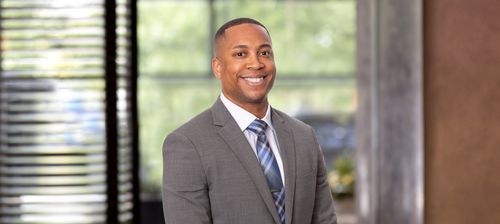Client Alert
HHS-OIG Issues Special Fraud Alert Directed at Drug and Device Manufacturers Regarding the Fraud and Abuse Risk of HCP Speaker Programs
Client Alert
HHS-OIG Issues Special Fraud Alert Directed at Drug and Device Manufacturers Regarding the Fraud and Abuse Risk of HCP Speaker Programs
November 20, 2020
On November 12, 2020, the U.S. Department of Health and Human Services’ Office of the Inspector General (HHS-OIG) stepped up its pressure on life sciences companies’ utilization of speaker programs by issuing a rare Special Fraud Alert regarding the “fraud and abuse risks associated with” remuneration or other compensation by pharmaceutical and medical device manufactures to health care professionals for participating in speaker programs. This Special Fraud Alert could be viewed as the culmination of nearly a decade of consistently increasing regulatory scrutiny on speaker programs. According to data tracked and published by the Centers for Medicare and Medicaid Services (CMS), drug and device companies have paid nearly $2 billion to health care professionals for speaker-related services between 2017 and 2019.
Both the medical device and pharmaceutical industries have wrestled with the competing concepts of value and risk in the utilization of clinical educational programs that involve compensated speakers.[1] As the Special Fraud Alert highlights, the remuneration paid to health care professionals who may also be prescribers of the product that is the topic of the speaker program implicates the scope of the federal Anti-Kickback Statute (AKS), the violation of which is a federal health care offense. Allegations that a health care professional has received, been offered, or solicited remuneration—which can include the transfer of anything of value, directly or indirectly, overtly or covertly, in cash or in kind—in exchange for making or influencing a prescribing decision about a product or service that is paid for directly or indirectly by a federal health care program can expose the participants to civil and administrative penalties under the federal False Claims Act (FCA), civil monetary penalties under the HHS-OIG’s administrative authority, and criminal fines, penalties, imprisonment, and mandatory exclusion from participating in federal health care program under the AKS.
See Special Fraud Alert: Speaker Programs available at https://oig.hhs.gov/fraud/docs/alertsandbulletins/2020/SpecialFraudAlertSpeakerPrograms.pdf.
From a health policy perspective, the HHS-OIG’s goal in offering guidance on the AKS is to support the integrity of medical prescribing decisions by health care professionals who may otherwise be improperly influenced by inappropriate financial incentives. The AKS criminalizes the knowing and willful solicitation, receipt, offer, or payment of any remuneration to induce or reward, inter alia, referrals for, or order of, items or services reimbursable by a federal health care program. In short, when remuneration is paid purposefully to induce or reward referrals of items or services payable by a federal health care program, the anti-kickback statute is violated. Violation of the statute is a felony punishable by a fine of up to $100,000, up to 10 years imprisonment, or both. While a party may have more than one purpose, including a non-prohibited purpose, for offering remuneration to a health care professional, the AKS can be implicated if only one of those purposes is to influence the recipient’s prescribing decision.
Stopping short of giving the perception of attempting to ban speaker programs, which might trigger First Amendment concerns, the HHS-OIG’s Special Fraud Alert notes that parties involved in speaker programs may be subject to increased scrutiny, expressing longstanding concerns over the practice of drug and device companies providing anything of value to health care professionals in a position to make or influence referrals regarding the company’s offerings. In particular, the HHS-OIG notes:
- When a drug or device company engages in “entertainment, recreation, travel, meals or other benefits in association with information or marketing presentations,” such arrangements may potentially implicate the anti-kickback statute; and
- When physicians consult or undertake a speaking arrangement with a drug or device company, this could be an improper inducement “to prescribe or use [company] products on the basis of . . . loyalty to the company or to get more money from the company, rather than because it is the best treatment for the patient.”
While the pharmaceutical and medical device industry has maintained that company-sponsored speaker programs are an important tool used to educate and inform health care professionals about the benefits, risks, and appropriate uses of medicines or devices, the HHS-OIG has expressed skepticism about the educational value of such programs, given the growing litany of FCA matters that have resulted in significant civil and criminal resolutions over alleged fact patterns involving (1) health care professionals receiving generous compensation to speak, (2) the programs themselves that do not appear to be offered only under circumstances conductive to learning, and (3) the inclusion of entertainment for recipients who have no legitimate educational reason to attend the program.
Though the HHS-OIG acknowledges that the lawfulness of speaker program arrangements under the AKS depends on the facts and circumstances of the event, as well as the intent of the parties, the alert points to studies concluding that health care professionals who receive remuneration from a company are more likely to prescribe or order the paying company’s products.
In attempting to address the life sciences industry’s interest in providing audiences with clinical information regarding its products and services, the HHS-OIG suggests that the existence of alternative educational forums, such as Internet-based resources, through which health care professionals can access information about the drug and device products that does not involve remuneration to prescribers, is evidence that speaker programs are not essential for legitimate educational purposes. The HHS-OIG even invokes the COVID-19 pandemic risk from in-person activities as a basis for pharmaceutical and device companies to re-assess their use of in-person programs where alternatives are available.
The Special Fraud Alert includes further specificity from the HHS-OIG on what it considers potential characteristics that suggest a speaker program arrangement may violate the AKS, including the following:
- The company sponsors speaker programs where little or no substantive information is actually presented;
- Alcohol is available or a meal exceeding modest value is provided to the attendees of the program (the concern is heightened when the alcohol is free);
- The program is held at a location that is not conducive to the exchange of educational information (g., restaurants or entertainment or sports venues);
- The company sponsors a large number of programs on the same or substantially the same topic or product, especially in situations involving no recent substantive change in relevant information;
- There has been a significant period of time with no new medical or scientific information or a new FDA-approved or -cleared indication for the product;
- Health care professionals attend programs on the same or substantially the same topics more than once (as either a repeat attendee or as an attendee after being a speaker on the same or substantially the same topic);
- Attendees include individuals who do not have a legitimate business reason to attend the program, including, for example, friends, significant others, or family members of the speaker or attendee; employees or medical professionals who are members of the speaker’s own medical practice; staff of facilities for which the speaker is a medical director; and other individuals with no use for the information;
- The company’s sales or marketing business units influence the selection of speakers, or the company selects speakers or attendees based on past or expected revenue that the speakers or attendees have generated or will generate by prescribing or ordering the company’s product(s) (g., a return-on-investment analysis in identifying participants); or
- The company pays speakers more than fair-market value for the speaking service or pays compensation that takes into account the volume or value of past business generated or potential future business generated by the health care professionals.
In sum, the HHS-OIG has taken the rare step of issuing a Special Fraud Alert on speaker programs to underscore its the growing skepticism and the disfavor with which it is viewing these educational tools going forward. With a new administration coming into office in 2021, the industry should examine its risk tolerances for these activities to remain in step with the HHS-OIG’s evolving enforcement priorities.
TIP: Drug and device manufacturers should be encouraged to explore the efficacy of virtual education modalities.
We note that government orders on the local, state, and federal levels are changing every day, and the information contained herein is accurate only as of the date set forth above.
******************************************************************************
For further information or questions on the HHS-OIG’s Special Fraud Alert, please contact Amandeep S. Sidhu, T. Reed Stephens, Christopher Parker, Nasir Hussain, or your Winston relationship attorney.
[1] For purposes of the alert, speaker programs are generally defined as company-sponsored events at which a physician or other health care professional makes a speech or presentation to other health care professionals about a drug or device product or a disease state on behalf of a company.




